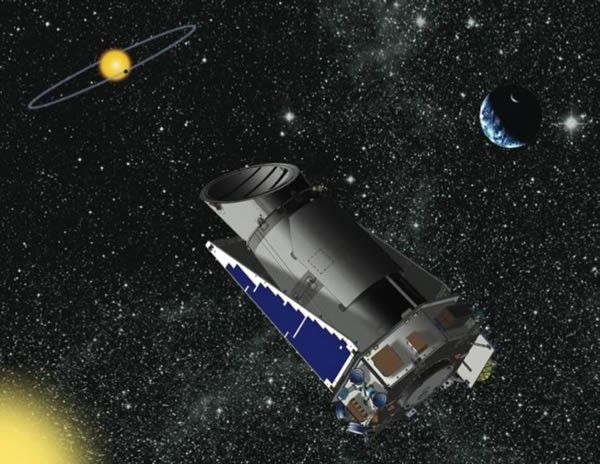Distant Moons Could Support Alien Life, Say Astronomers

Astronomers believe the discovery of up to 50 moons orbiting distant planets could provide the best potential leads in the search for alien life.
The moons would be the first ever discovered beyond the solar system. If their existence is confirmed, it could shed new light on how planetary systems evolve.
Scientists at Harvard University analysing data from the Kepler space telescope say they have found 2,700 potential new planets orbiting distant stars.
Of these, they chose the 250 most promising planets, looking for fluctuations in light intensity that could indicate the presence of a moon.
"About 50 of the planets have a signal suggesting they could have their own moons," said David Kipping, a British astronomer at Harvard who heads its Hunt for Exomoons project.
"None are confirmed yet. They could turn out to be stellar 'noise', but it is very exciting."
"Exomoons" - or moons which orbit other planets - are thought to be among the likeliest places for alien life. They are far smaller than the other planets found so far, which are characterised chiefly by their crushing gravity and lack of rocky surface.
The first planet orbiting another star was detected 18 years ago, but since then thousands more candidates have been found.
The Kepler telescope has been gathering data for the past four years, generating a mass of information on extra-solar planets.
"We have been looking for life on other planets, but there is no reason why moons should not be habitable too," said Kipping. "There may well be more habitable moons than planets in the cosmos."
The Kepler project monitors 150,000 stars, and recently identified a potential planet 1.5 times the size of Earth where it might be possible for water to exist.
"It is becoming clear that exomoons could be one of the likeliest places to find alien life," said Bill Borucki, an astronomer at Nasa's Ames Research Centre and the principal scientist on the Kepler mission.
© Copyright IBTimes 2025. All rights reserved.





















